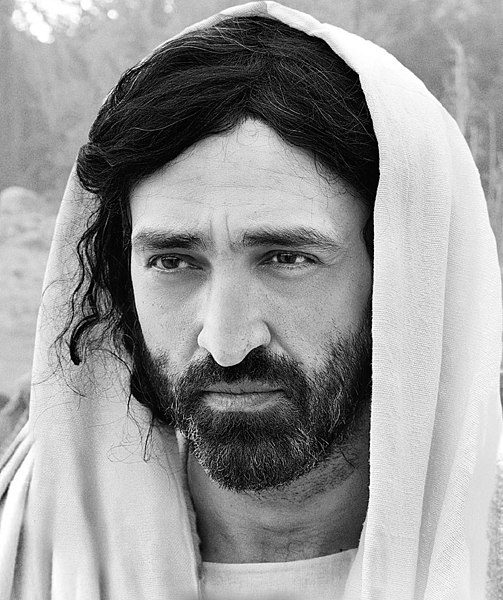
Michael J. Alter is the author of the copiously researched, 913-page volume, The Resurrection: a Critical Inquiry (2015). I initially offered 59 “brief” replies to as many alleged New Testament contradictions (March 2021). We later engaged in amiable correspondence and decided to enter into a major ongoing dialogue about his book. He graciously (and impressively!) sent me a PDF file of it, free of charge, for my review.
Mike describes himself as “of the Jewish faith” but is quick to point out that labels are often “misleading” and “divisive” (I agree to a large extent). He continues to be influenced by, for example, “Reformed, Conservative, Orthodox, and Chabad” variants of Judaism and learns “from those of other faiths, the secular, the non-theists, etc.” Fair enough. I have a great many influences, too, am very ecumenical, and am a great admirer of Judaism, as I told Michael in a combox comment on my blog.
He says his book “can be described as Jewish apologetics” and one that provides reasons for “why members of the Jewish community should not convert to Christianity.” I will be writing many critiques of the book and we’ll be engaging in ongoing discussion for likely a long time. I’m quite excited about it and am most grateful for Mike’s willingness to interact, minus any personal hostility.
To see all the other installments, search “Michael J. Alter” on either my Jews and Judaism or Trinitarianism & Christology web pages. That will take you to the subsection with the series.
I use RSV for all Bible verses that I cite. His words will be in blue.
*****
Michael Alter wrote:
CONTRADICTION #99 Initial Contradictory Responses of Jesus to His Disciples
Mark 16:14 reported that Jesus verbally rebuked his disciples for their disbelief and hardness of heart: “Afterward he appeared unto the eleven
as they sat at meat and upbraided them with their unbelief and hardness of heart, because they believed not them which had seen him after he was risen.”
Matthew did not describe an initial response in Jerusalem. Neither did Matthew record Jesus’s initial response to the disciples’ lack of faith when it was reported that some doubted while meeting him in the Galilee.
In direct contradiction to Mark, Luke has Jesus attempting to reassure his disciples by demonstrating that he was really a physical and fully materialized person. This he tried to accomplish by showing his hands and feet and by eating.
Similar to Luke, in John, Jesus seemingly tried to allay and dispel any thought that he was not physically risen from the dead. Here, too, he showed the disciples his hands. However, Jesus did not offer to show his feet. Instead, he offered to show his side. (p. 578)
It’s no contradiction at all. Jesus had all along rebuked His disciples for being slow to believe. Thus, Mark expresses something that was rather “old hat” by that time. Jesus had told His disciples many times that He would suffer, be killed, and rise again after three days. But they just didn’t “get it” till it actually happened. And we can understand that because these are no ordinary events.
Matthew happens not to mention this motif in his description of the post-Resurrection appearances of Jesus, but not mentioning something is not a contradiction, as I have reiterated over and over. It’s not like Matthew never talks about unbelief in his Gospel. He certainly does:
Matthew 13:58 And he did not do many mighty works there, because of their unbelief.
Matthew 16:1-4 And the Pharisees and Sad’ducees came, and to test him they asked him to show them a sign from heaven. [2] He answered them, “When it is evening, you say, ‘It will be fair weather; for the sky is red.’ [3] And in the morning, `It will be stormy today, for the sky is red and threatening.’ You know how to interpret the appearance of the sky, but you cannot interpret the signs of the times. [4] An evil and adulterous generation seeks for a sign, but no sign shall be given to it except the sign of Jonah.” . . . (cf. 12:38-42; Mk 8:11-12)
Matthew 16:21-23 From that time Jesus began to show his disciples that he must go to Jerusalem and suffer many things from the elders and chief priests and scribes, and be killed, and on the third day be raised. [22] And Peter took him and began to rebuke him, saying, “God forbid, Lord! This shall never happen to you.” [23] But he turned and said to Peter, “Get behind me, Satan! You are a hindrance to me; for you are not on the side of God, but of men.” [this is right after Jesus renamed Peter “Rock” and made him the head of His Church (i.e., the first pope) that He was to establish]
Alter noted that Matthew did state that “some” of the “eleven disciples” who saw the risen Jesus “doubted” (28:16-17). He simply doesn’t provide the details of how they verbally doubted and what Jesus said in reply. He is under no obligation to do so. God in His providence, in inspiring the supernatural revelation of the NT, saw that this was incorporated into other accounts. But so far, Mark and Matthew don’t contradict in the slightest.
Alter claims that the Gospel of Luke contradicts Mark because it describes Jesus eating and showing His pierced hands (i.e., empirical evidence that He was physically — not just “immaterially” — resurrected). But no one can say that Mark (and Matthew) denied this. They simply didn’t include it. Nor does Luke in his Gospel omit all rebukes of Jesus for lack of faith simply through hearing:
Luke 11:29-32 When the crowds were increasing, he began to say, “This generation is an evil generation; it seeks a sign, but no sign shall be given to it except the sign of Jonah. [30] For as Jonah became a sign to the men of Nin’eveh, so will the Son of man be to this generation. [31] The queen of the South will arise at the judgment with the men of this generation and condemn them; for she came from the ends of the earth to hear the wisdom of Solomon, and behold, something greater than Solomon is here. [32] The men of Nin’eveh will arise at the judgment with this generation and condemn it; for they repented at the preaching of Jonah, and behold, something greater than Jonah is here.
Luke 16:27-31 And he said, `Then I beg you, father [Abraham], to send him to my father’s house, [28] for I have five brothers, so that he may warn them, lest they also come into this place of torment.’ [29] But Abraham said, `They have Moses and the prophets; let them hear them.’ [30] And he said, `No, father Abraham; but if some one goes to them from the dead, they will repent.’ [31] He said to him, `If they do not hear Moses and the prophets, neither will they be convinced if some one should rise from the dead.'” [story told by Jesus, thus revealing His views about “necessary” (?) empirical evidence]
Moreover, in Luke, right before Jesus ate with His disciples and showed them His physical hands and feet, He also said:
Luke 24:25-27 “O foolish men, and slow of heart to believe all that the prophets have spoken! [26] Was it not necessary that the Christ should suffer these things and enter into his glory?” [27] And beginning with Moses and all the prophets, he interpreted to them in all the scriptures the things concerning himself.
Then Alter acts as if John has a different, contradictory view. He doesn’t. He has Jesus disdaining the demand for signs as well:
John 2:18-21 The Jews then said to him, “What sign have you to show us for doing this?” [19] Jesus answered them, “Destroy this temple, and in three days I will raise it up.” [20] The Jews then said, “It has taken forty-six years to build this temple, and will you raise it up in three days?” [21] But he spoke of the temple of his body.
John 4:48 Jesus therefore said to him, “Unless you see signs and wonders you will not believe.”
In the Gospel of John, we have the famous episode of Doubting Thomas, who refused to believe until He touched the risen Jesus. So Jesus, in His mercy for those who are slower than others, appeared to and for Thomas, knowing that he would believe if this evidence were provided. And indeed, Thomas did; even calling Jesus “Lord” and “God” as a result (Jn 20:28). But note what Jesus said right after that:
John 20:29 Jesus said to him, “Have you believed because you have seen me? Blessed are those who have not seen and yet believe.”
Jesus’ behavior and the four Gospel descriptions of it are utterly consistent throughout His ministry: He was reluctant to, or outright refused to do miracles and signs when He knew (in His divine omniscience) it was to no avail; that those who opposed Him would not be swayed by them. They would simply say He was possessed or did miracles through a diabolical rather than divine power. Nothing was good enough for them.
But when He was, on the other hand, with those He knew would believe and be positively affected by His miracles (like Thomas the disciple), He would perform miracles, and appear after He rose. This is the key to understanding what Alter doesn’t understand, thus leading him to (what else?) his usual misguided, misinformed cry of “contradiction!”. Well, atheists and skeptics like Alter are in good company: the disciples were also clueless until they themselves saw the risen Jesus. It’s only by the grace of God that any of us come to believe in God and in Jesus as the incarnate God.
***
Photo credit: Selva Rasalingam as Jesus in the The Gospel of Luke (2016, Netflix USA) [Wikimedia Commons / Creative Commons CC0 1.0 Universal Public Domain Dedication]
Summary: Michael Alter claimed that Jesus & the Gospels were contradictory with regard to Jesus’ view of unbelief & evidence. They were not at all, as I explain. It’s more “pseudo-contradictions.”
Tags: alleged Bible contradictions, alleged Resurrection contradictions, Bible “contradictions”, Bible “difficulties”, Bible Only, biblical inspiration, biblical prooftexts, biblical skeptics, biblical theology, exegesis, hermeneutics, Holy Bible, inerrancy, infallibility, Jewish anti-Christian polemics, Jewish apologetics, Jewish critique of Christianity, Jewish-Christian discussion, Michael J. Alter, New Testament, New Testament critics, New Testament skepticism, Resurrection “Contradictions”, Resurrection of Jesus, The Resurrection: A Critical Inquiry, Jesus’ view of unbelief & evidence












